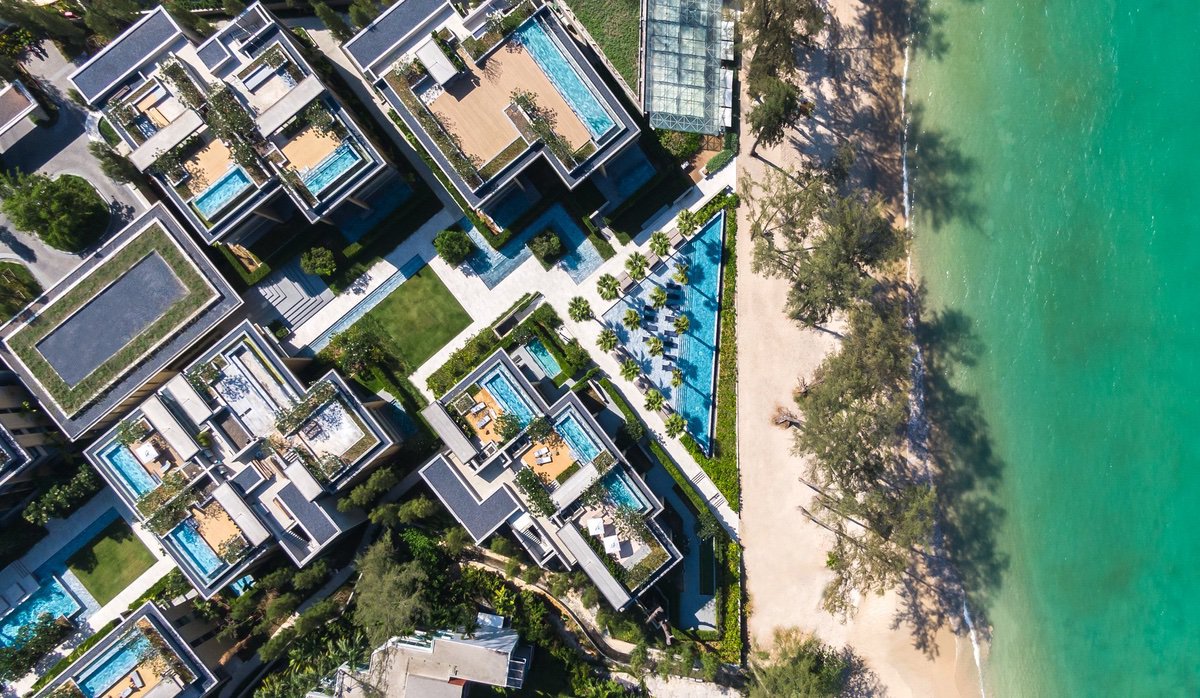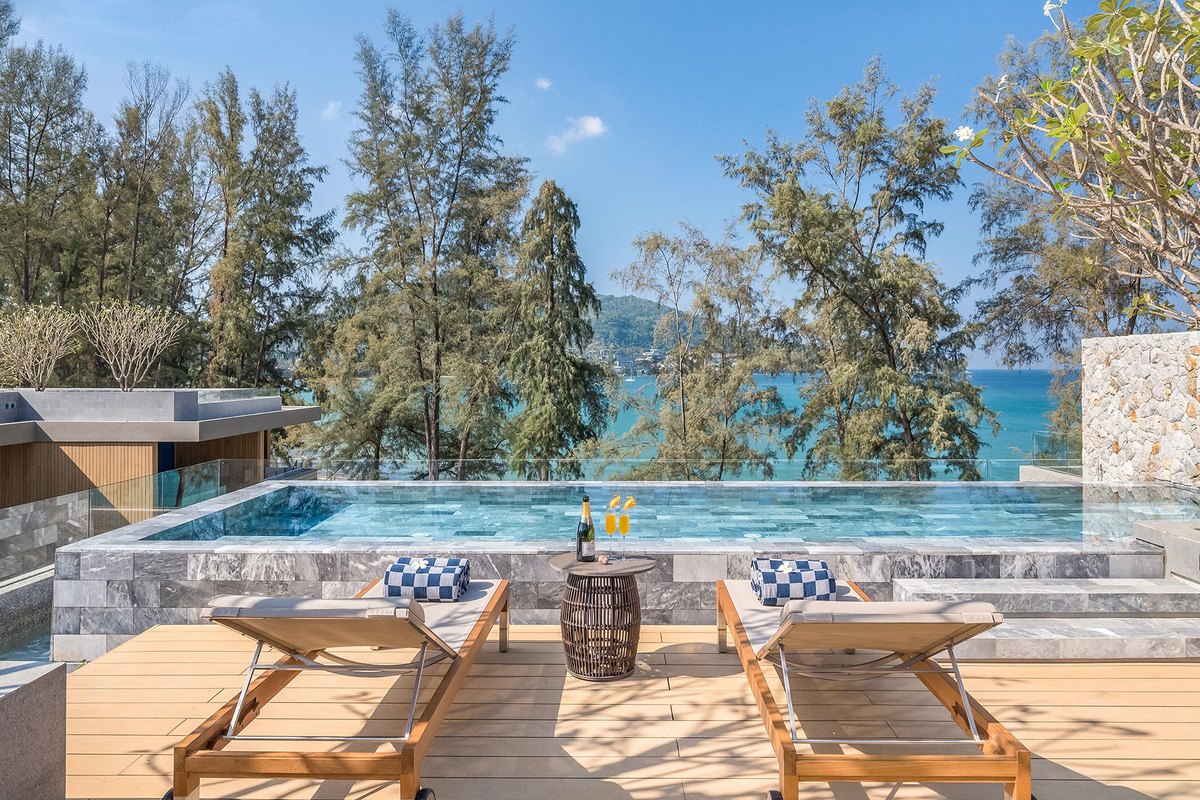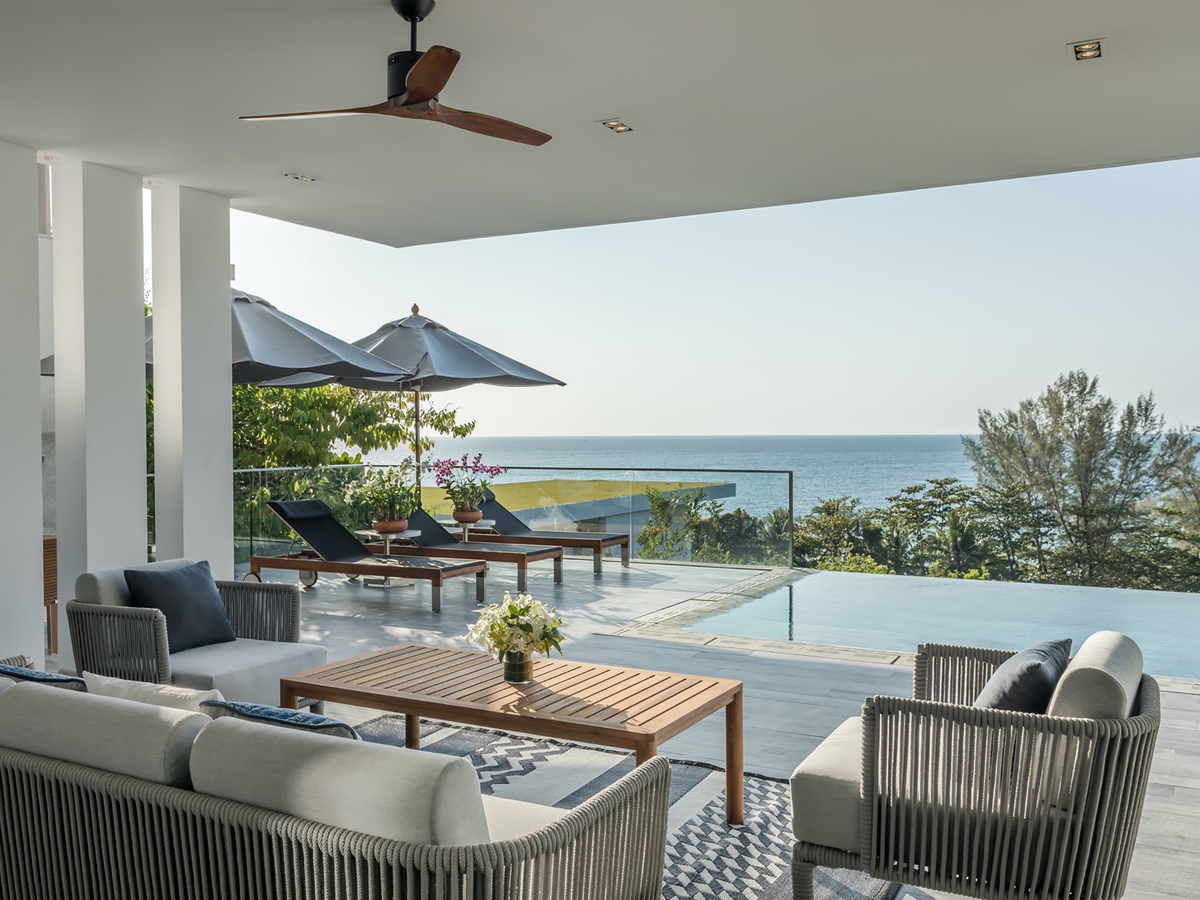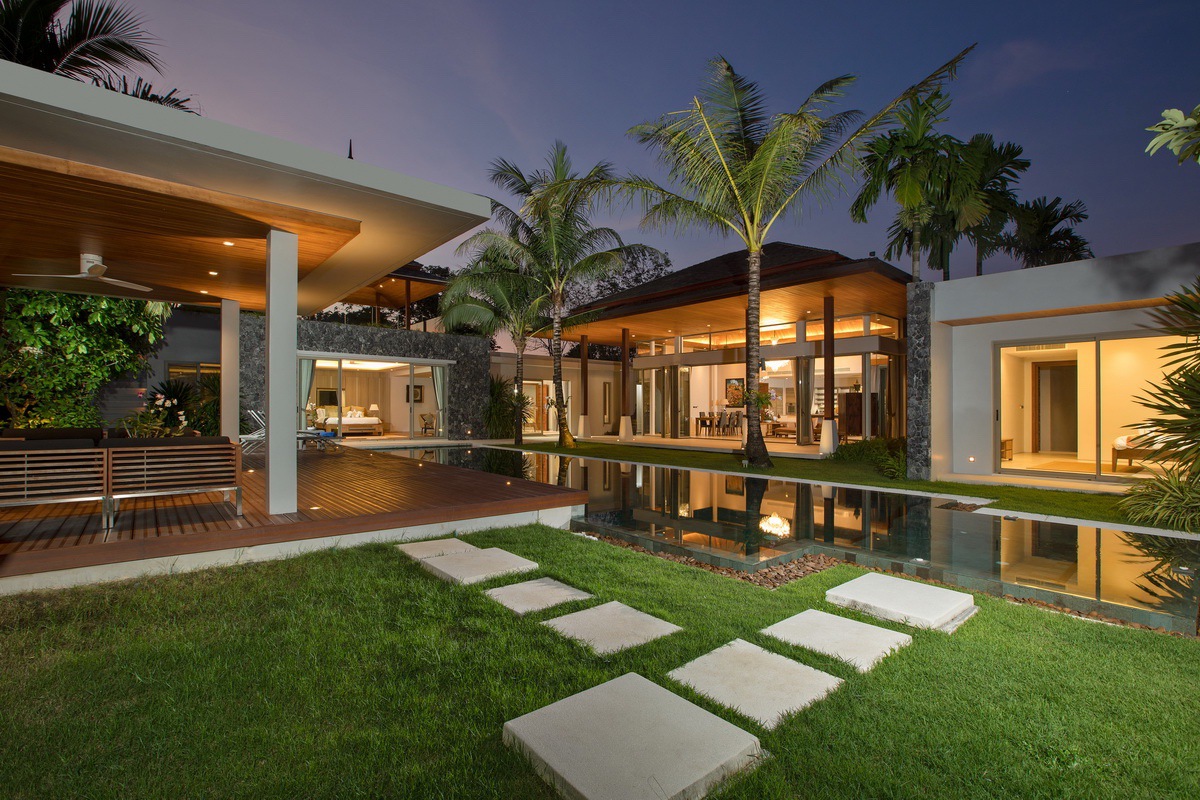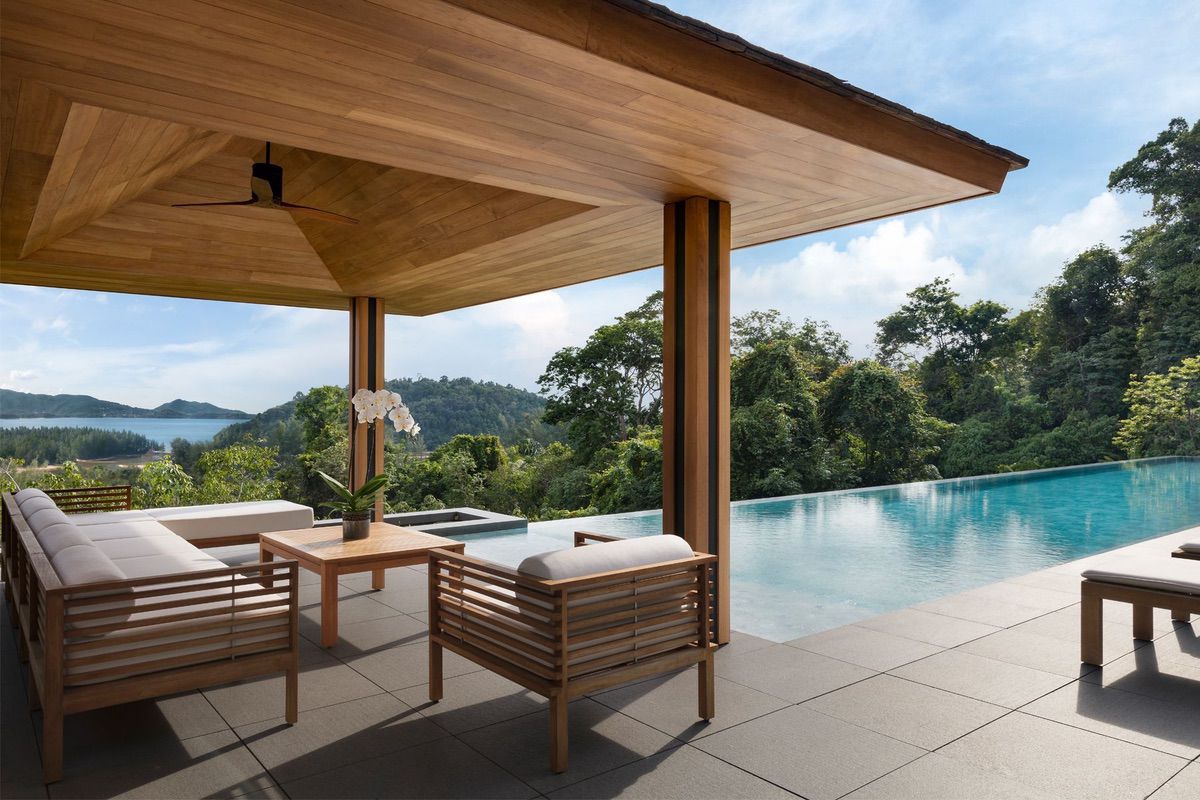Part 1. Basics
How to buy real estate in Thailand so that not to regret it later?
To answer this question, one should clearly understand what risks could be faced. For example, there is always a risk of choosing real este that will not meet your investor expectations or even turn into a financial burden. Or you can choose the right object to purchase but at the same time blunder in legal issues.
If you want to avoid such scenarios, there are simple rules to follow. Firstly, it always makes sense to choose an object to buy consulting with a professional advisor. After all, they will not only help you figure out who is who in the real estate market, but will also tell you which projects have the greatest potential for further leasing. All in all, in 90% of cases, real estate in Thailand is purchased to get rental income. It will be a shame to invest in an object that will not be in great demand among vacationers. Secondly, always hire independent and competent lawyers from reputable companies. Thirdly, be sure to study the issues and get ready as well.
To simplify the task, we have prepared a longread about the specific features of buying real estate in the Kingdom of Thailand. Let us emphasize right away: this is not a comprehensive legal guide but rather a friendly story about important nuances that everyone should know before buying.
On the Spirit and Letter of Thai Law
Let’s start with the main thing: only Thai residents can own land in Thailand. Foreigners are deprived of this right, no matter how much they want it. At the same time, foreigners can register their ownership of an apartment or a villa building. But not the land. The very word “Thailand” means “the land of the Thai people”. In fact, it is the central tenet of Thai culture and the spirit, on which land ownership law is based.
Naturally, as in any other country, there are legal tricks and loopholes that allow bypassing the bans in one or another way. Moreover, today many foreigners de facto own land in Thailand. The only problem is that they often do it incorrectly, using “legal crutches” somehow assembled by unscrupulous or incompetent lawyers.
However, one should have in mind that if such a “crutch” is considered in court, the decision will be made based on the spirit of the law, which always prevails over the letter and prohibits foreigner’s land ownership. In such cases, judges usually rule against violators of the spirit of the law.
However, don’t get upset ahead of time. After all, there are various ways that allow foreigners to legally invest in Thai real estate and sleep with a calm mind. You just need to know and obey the rules of the game. Don’t really think of saving on qualified legal assistance. But first things first.
Freehold vs Leasehold
Thai law provides two options for foreigners for owning real estate: Freehold and Leasehold.
Freehold
Freehold is full and unconditional ownership for an unlimited period. This right is confirmed by a Chanote, a document executed in the name of a foreigner.
Foreigners can buy in Freehold only apartments in residential complexes with “condominium” status and only within the so-called “foreign quota”. According to the effective law, only 49% of the area (“foreign quota”) is allocated in condominiums for sale to foreigners in Freehold. The rest of the area (51%) is allocated for sale to Thai residents (“Thai quota”).
For example, if there are 100 apartments in a condominium, only 49 of them can be sold to foreigners in Freehold. The rest of the apartments can be sold in Freehold only to Thai residents (individuals or legal entities). If all apartments from the “foreign quota” are sold out, foreigners can buy an apartment from the “Thai quota”, but only in Leasehold.
Freehold Advantages:
• Full and unconditional ownership for an unlimited period;
• Full freedom of disposal: to sell, donate and/or inherit;
• Right to vote at meetings of condominium owners.
Freehold Disadvantages:
• Funds to buy the real estate must come from abroad (we will discuss this further);
• Cost of apartments in the “foreign quota” is generally 5-10% higher;
• Property in Freehold is declared and taxed;
• Registration expenses are slightly higher compared to Leasehold (2-3% of the value);
• You cannot register land in Freehold if you are a foreigner.
Leasehold
Leasehold is a form of ownership with a limited duration.
In fact, Leasehold is a long-term lease agreement. The peculiarity is that for the entire duration of the lease agreement (30 years), the landlord (owner) grants the tenant (foreigner) all rights to dispose of the real estate: to live, construct, make repairs or alterations, resell, donate, sublease and/or bequeath. At the same time, after the first 30 years, the parties can renew the agreement for another 30 years. And then for another 30 years. However, the renewal is not guaranteed.
Chanote is also a document confirming the rights of the Leasehold owner, but it indicates the agreement validity term.
The landlord-owner is usually a Thai legal entity (developer) or a Thai citizen (e.g. land owner).
As a rule, foreigners register the following in Leasehold:
• Land on which the villa has already been built (or is planned to be built);
• Apartments in a residential complex without the “condominium” status;
• Apartments in a condominium within the “Thai quota”.
Leasehold Advantages:
• Cost of apartments in Leasehold is generally 5-10% lower compared to Freehold;
• Unlike Freehold, when buying in Leasehold, funds do not obviously have to come from abroad. You can pay in cash or by a credit card.
• Registration and documenting of Leasehold is cheaper compared to Freehold (duties and fees will be 1.1%);
• Given inflation and the constant rise in villa rental prices, you will pay much more in 30 years, if you just rent a villa on an annual basis. In fact, by Leasehold you pay rent for 30 years in advance and thus fix the current rent;
• A landlord has a wide range of rights in respect of the rented real estate: the right to permanently reside, change the interior, landscape, construct buildings (if we are talking about land), sublet, sell Leasehold to third parties, as well as the right to bequeath it;
• A correctly made Leasehold Agreement allows the renewal of the initial 30-year period when selling Leasehold to third parties (renewable Leasehold);
• Since the landlord is not the owner of the real estate, there is no tax on the real estate sale when the Leasehold is re-registered to another person;
• Leasehold can be resold as a Freehold to a Thai resident;
• The agreement may provide for the possibility of re-registering the Leasehold into Freehold, in the event that Thai law sooner or later allows foreigners to own the land.
Leasehold Disadvantages:
• Risk of the agreement non-renewal for a new term after the first 30 years;
• It is necessary to maintain contact with the owner throughout the entire Leasehold period;
• Risk of change of ownership and related inconveniences (see below);
• No voting rights at meetings of condominium owners.
Tips when registering a Leasehold
Tip 1. Be sure to register the relevant agreement with the Land Office
Risks: In the event of an owner change (death, sale, bankruptcy, etc.), the new owner is not obliged to comply with the terms and conditions of the lease agreement that has not been registered with the Land Office. In such a case, the new owner can even evict the tenant without giving any reason.
Solution: Any lease agreement valid for more than 3 years must be registered with the Land Office. Following the registration, the property is encumbered, which confirms the rights of the Leasehold owner for the next 30 years, including sublease and the right to transfer the Leasehold to his/her heirs.
Tip 2. Avoid agreements with guaranteed renewals (30 + 30 + 30)
By agreement of the parties, a lease agreement can be renewed again after the first 30 years. However, such a renewal is not guaranteed. If the owner changes within the first 30 years, the obligation to renew the agreement will not apply to the new owner. There is a vicious practice when the value of a lease agreement initially provides for and guarantees an automatic renewal of the lease agreement up to 60, 90 or even 120 years. This cannot be done and any good lawyer will tell the same.
Risks: The very fact of the automatic renewal guarantee is a violation of the spirit of the law and de facto it is no longer a lease but a full-fledged title, which is prohibited. Such an agreement runs the risk of being invalidated if considered in court with all that it implies.
Solution: A clause on a possible renewal (not a guaranteed one) is usually included in the annex to the lease agreement and most likely there will be no problems with its renewal for the second 30 years. We also recommend initially treating a Leasehold agreement as a contract valid for 30 years. Let the subsequent renewal be a pleasant bonus for you.
Tip 3. Include a Cancellation Clause into the agreement
It might sound strange to include a clause allowing for the termination of a lease agreement but there is a good reason for it.
Risks: Imagine that after the first 15 years, a foreign tenant decides to resell his Leasehold. It turns out that the potential buyer will be able to acquire the lease right only for the remaining 15 years. Obviously, the Leasehold value will significantly drop due to this.
Solution: A clause allowing terminating the current lease agreement and draw up a new agreement with the renewal of the full term in the event of the Leasehold sale will help protect the value of the Leasehold. Thus, a new tenant will be able to count on a full 30-year lease term. However, it should be noted that such a termination clause will only apply to the original owner-landlord. In case of his/her change, the new owner is not obliged to comply with this clause.
Tip 4. Include a sublease clause in the agreement
In most cases, persons who have registered a Leasehold do so with the intention of subleasing real estate to receive investment income. Such an intention requires the cooperation of the owner, therefore, it is advisable to include a clear sublease clause in the agreement.
Tip 5. Make a contract in your name and in the names of your loved ones
Risks: In the event of the tenant’s death, the lease becomes invalid and the owner may return the property back. As the Supreme Court of Thailand established in one of its decisions: “there is no lease agreement without a tenant”. Of course, you can include an inheritance clause in the lease agreement, providing for the transfer of the Leasehold to the heirs of the deceased tenant. However, such a clause will not be valid if the initial owner changes.
Solution: nitially, you should draw up a Leasehold agreement for several persons (for example, for your spouse and/or adult children in addition to yourself). In the event of the tenant’s death, the persons included in the agreement will be able to continue to dispose of the Leasehold.
Tip 6. Include an arbitration clause into the agreement
No one is immune from conflicts and disputes. Regardless of the type of agreement, foreigners are advised to include therein a clause on the mandatory consideration of possible disputes not in a Thai court but in the framework of arbitration. Arbitration is a process by which parties to a dispute can hear their arguments in from of an independent body without having to go through potentially lengthy litigation. Regardless of the outcome of the case, arbitration has a number of advantages over Thai courts. First, the arbitration process itself will be much faster and cheaper. Secondly, all documents and discussions can be in English without the need to be translated into Thai. Third, the arbitrator’s decision is legally binding on both parties.
Part 2. Basic Methods to Buy
There are absolutely legal and transparent ways for foreigners to buy and register real estate in Thailand. The choice of this or that method depends on the type of real estate being purchased, the purpose of the purchase (to reside there or as an investment), as well as the buyer’s financial capabilities.
Method 1. To title real estate in your own name
You can always choose the simplest way: select an apartment in a condominium from a foreign quota and buy it in your own name in Freehold, that is, full and unconditional ownership for an unlimited period.
If all the apartments from the foreign quota are bought out or a residential complex does not have the “Condominium” status, you can register a Leasehold, which we discussed in the first part.
Method 2. To title in a Thai Company (Thai Co. Ltd)
When it comes to land ownership (land or villa), a common method is to buy real estate through establishing a Thai legal entity (Thai Co. Ltd), where a foreigner has a share and, as a rule, is a director. Unlike foreign citizens, a Thai company can absolutely legally buy any real estate in Freehold. Thus, by controlling the company, a foreigner also controls the real estate titled in the company. On the one hand, everything is legal, but there are nuances.
How to do it wrong?
The problem is that Thai companies are often used with violations that can lead to unpleasant consequences.
Following the advice of unscrupulous legal advisers, foreigners establish a Thai legal entity, recruit nominal Thai shareholders (since, by law, 51% of the company must be owned by Thai citizens), register real estate for the company and that’s it. The company does not operate and submits zero reports. In fact, this whole structure is used as a “legal crutch” to bypass the direct prohibition on foreign ownership of land.
However, Thai authorities have made it clear that it is illegal to use Thai legal entities solely as a “holding company” to own property. That is, a company established solely for the purpose of buying a dwelling for living, performing no other functions and carrying out no real business activities is technically a violation of the law. Moreover, using nominee shareholders to exercise control over a Thai company is also a violation.
Such a “holding company” will not withstand the most basic and superficial inspection by the authorities. As a result, the company may be dissolved and you will have to dispose of the real estate while paying heavy fines.
How to do it right?
First of all, you need to realize that it is possible to own real estate through a Thai company only if the company carries out business activity in full in compliance with all formalities.
If you are running a real business that generates income, pays taxes, has proper accounting, legitimate Thai shareholders and complies with Thai corporate laws, your company can acquire land ownership to conduct business. For example, you can start a legitimate property rental business.
However, running a Thai company, especially if it is done correctly, entails additional costs, including the costs of an accountant and a lawyer. Moreover, the company must have a registered legal address and preferably an office. Don’t also forget about the additional tax burden.
It may be concluded from the above, that if you want to buy a well-priced apartment, you should not choose the option of establishing a Thai company. The costs of establishing and maintaining a Thai company will simply override the potential income from renting your real estate.
A Thai company will come in handy if you are going to invest in a more or less large project that is thought of as a full-fledged real estate business (for example, a complex of villas constructed for further lease).
Method 3. Combination: ownership of building + leased land (Leasehold)
Unlike land, Thai law does not prohibit foreigners from registering a villa in full ownership. Thus, a combined scheme is involved, i.e. the land is leased under a Leasehold agreement for 30 years, and the building itself is titled in a foreigner.
If the villa construction is only planned, then the Leasehold agreement contains a clause on the tenant’s right of building (superficies). The superficies right means the legal separation of the title to the land from the title to buildings located on this land.
Another type of combination is the following method: the title to land is registered in an operating Thai company where a foreigner has a share. The building is fully titled in the name of a foreigner. And the cherry on top is that a Thai company leases land to a foreigner in Leasehold. This scheme quite effectively protects a foreigner’s interests from all sides, provided that, however, the nuances described above are taken into account (see Method 2 above).
Method 4. To title in an offshore company
Some people prefer using offshore companies to register their title to real estate. However, this method is again only suitable if you purchase an apartment in Freehold from a foreign quota. As foreign legal entities cannot own land the same as foreign citizens.
You can use a classic offshore company registered in the Seychelles, British Virgin Islands or any other jurisdiction. The main reason for titling the real estate in an offshore company is usually a simplified inheritance procedure. In the event of the owner’s death, his/her heirs receive control over the offshore company and, accordingly, over the real estate it owns. Everything takes place without fanfare and with minimal costs. Another undoubted advantage is the ability to simply sell your property by assigning corporate rights to an offshore company.
There are also a number of nuances to consider.
If an offshore company owns real estate in Thailand, it is necessary to submit a balance sheet with details of rental income.
If the director of such an offshore company resides in the apartment free of charge, this can be regarded as a benefit from the company in kind. In such a case, the directors may be required to pay income tax on the fair market value of the annual rent.
Moreover, if an offshore company sells real estate, you will have to pay corporate tax on any capital gains for the entire period of ownership. In such a case, it is still more profitable to assign corporate rights to the company.
Please have in mind the costs associated with the establishment of an offshore company and its annual maintenance. Therefore, if we are talking about buying inexpensive apartments, everything should be weighed and carefully calculated.
Method 5. Invest $ 1.3 Million in Thailand
Article 96 of the Land Code provides for the only way for a foreign citizen to acquire ownership of Thai land in his/her own name. You just need to invest 40 million THB (about $ 1.3 million) in the country’s economy. Typically, such an investment is made by purchasing government stocks or bonds. At the same time, the size of the land plot to be acquired cannot exceed 1600 sq.m (1 rai), and the purpose of the acquisition should be exclusively personal use, that is, one’s own residence in this territory. Moreover, the ownership right terminates with the death of the owner. This method is definitely not for everyone, but it should be mentioned.
Method 6. Take advantage of the BOI benefits
There is another legal but rather complicated way to acquire land in Thailand. This requires a business: either a company based in Thailand or a representative office of a foreign company. But the main thing is that such a business should be covered by the program to support enterprises that are strategically beneficial to the state. There is special committee on investments (Board of Investments or BOI) in Thailand reporting directly to the Cabinet of the Prime Minister of Thailand. This Board provides various benefits to businesses that develop high technologies or produce goods with high added value. These can be companies related to the IT industry or complex modern production.
There are a number of criteria that such a business must meet and additional steps during its registration. In case such a procedure is successfully completed and a BOI certificate is obtained, the business will receive a certain type of benefits, which may include a reduction in the tax burden, exemption from duties or permission to acquire land in Thailand. Such benefits are provided exclusively for business activities. Accordingly, if such activities cease, the benefits also cease to apply. Thus, if a company has acquired a land plot, then in case of termination of business activities, the land plot must be sold within 1 year.
Method 7. To title in a Thai spouse
We should also mention the option of titling the land in a Thai spouse. In general, this is a rather risky method, because in case of termination of the relationship the property in 99.9% of cases will remain with the Thai citizen. When buying real estate, it is necessary to make a joint statement that the transaction is made at the expense of the personal funds of the Thai wife (after all, marrying Thai women is more common than marrying a Thai man). Since the foreigner has no claims to the property, it can be sold or mortgaged without his/her consent.
A common method is when a Thai wife leases the land after it is purchased to her foreign spouse for 30 years. In such a case, the foreigner’s right to reside on this land will be protected during the lease term. Even if this property is sold to third parties, a foreigner will be able to freely live there until the lease agreement expiry date.
Part 3. Real Estate Due Diligence and Purchase Procedure
The Importance of Due Diligence
Before investing a significant amount in Thai real estate, it always makes sense to get ready and conduct a Due Diligence. After all, you not only buy real estate but also assume all legal obligations associated with it.
Some buyers consult with the lawyers hooked up by the seller. In fact, if the developer is a serious one, then there is no particular risk. However, no matter who you buy from or what you buy, we recommend that you always engage an independent lawyer from a reputable company.
Now let’s discuss what points a thorough Due Diligence should clarify. The fact is that many end with a basic check like: “My lawyer requested a title deed from the Land Office. He translated it and the document contained the confirmation of the seller’s title and the property’s non-pledge”. It is nice as a first step, but it is not a true due diligence.
For everything to be fine, your lawyer should take the following steps:
• Conduct the due diligence of the title deed. You should check the validity of the document itself as well as study its entire history. The mere fact of having a title deed does not mean that it was issued legally. A document issued with violations may be invalidated;
• Make sure that the title is free from any restrictions and encumbrances (pledge, loan, mortgage, etc.);
• Confirm that the seller (for example, a developer) is the legal owner of the real estate and no third parties are mentioned in the title deeds;
• Check the legal rights of access to the property. The title deed must show the location and size of the land plot with all access points;
• Make sure that the land for construction is not “dirty”. This how the land that is not intended for construction and fell into private hands through fraud and shady deals (for example, forest land) is called. This is extremely rare, but it happens.
• Draft a report on regulations and rules governing land use and construction on this land (if we are talking of a planned construction of a villa);
• If we are talking about an already built villa, you need to confirm the legal validity of the construction permit (Building Permit). Availability of a building permit does not mean that the building has been legally constructed. If it is proved that the permit was issued in violation, it will be declared invalid and the building may be demolished.
• In the case of condominiums, you should make sure that an EIA (Environmental Impact Assessment) has been issued, meaning that the project has been reviewed by the relevant committee and approved for construction;
• Confirm that property has appropriate licenses. For example, a condominium license or a hotel license.
• If real estate is bought through the purchase of a company, be sure to conduct a due diligence of all accounting, corporate and legal documents associated with it.
The above list is not exhaustive. There are other nuances depending on the real estate type and the nature of the transaction. A qualified lawyer will tell you more about this during the consultations.
Purchase procedure
So, you have finally found the best option and are ready to make a transaction. The purchase procedure will depend on several factors:
• What exactly are you buying – is it an apartment or a villa?
• Who is the sellerr – is it a developer (primary market) or a private person (secondary market)?
• At what stage do you buy – during the construction stage or after commissioning?
Let’s consider the main stages of the procedure using the example of buying a condominium apartment from a developer.
Stage 1. Making a reservation deposit and conducting due diligence
First of all, you need to reserve the apartment you like. To do this, a reservation agreement is signed, which provides for a deposit. When buying apartments from the developer, the deposit is usually THB 100,000 or 1% of the purchase value. To execute a reservation agreement, it is enough to have only a passport, and the deposit itself can be paid in cash.
Your lawyer should take care of several important issues to be included in the reservation agreement. First of all, the agreement should provide that your lawyer is given the necessary time to review the principal real estate purchase agreement and conduct due diligence we mentioned above.
It is also extremely important to provide that the deposit must be refundable in case any problems with the real estate are revealed during the due diligence.
The principle purchase agreement provides for all the terms of the transaction, including the value of the real estate, the amount of taxes and fees, the cost of the furniture package, the payment schedule, as well as additional costs (for example, the cost of monthly maintenance and the amount of payment to the sinking fund). The fact of the reservation deposit payment is also indicated in the principle purchase agreement.
Stage 2. Transferring funds to Thailand
Once the legal due diligence is successfully completed, you need to take care of the legal transfer of funds to Thailand. It is extremely important to do everything in accordance with the law so that in the future there appear no difficulties with the withdrawal of money from Thailand if you sell your real estate. According to the Condominium Act, foreigners wishing to purchase a condo in Thailand in Freehold must transfer funds from abroad.
To do this, you need to open an account with a Thai bank and request an FETF (Foreign Exchange Transaction Form) application form. This certificate is needed to make a foreign exchange transaction, i.e. the transfer of foreign currency to your Thai account and its subsequent conversion into Thai baht.
There are a number of nuances to consider when making a bank transfer.
• The transfer amount must not be less than the real estate value;
• It is important that the name of the payer matches the name in the purchase agreement. Ideally, specify all beneficiaries (spouses, children) who will be the heirs in the event of your death in the payer column. This will simplify the inheritance procedure;
• Indicate the purpose of the payment (real estate purchase) and the name of the development where the condo is purchased.
After the funds are received, the bank will issue a FETF certificate, which confirms the legality of the funds and will be needed at the Land Office. If the payment comes from abroad directly to the developer’s account, the developer will obtain the FETF certificate on your behalf. It should be noted that if you are buying a Leasehold condo, funds do not have to come from abroad, so no FETF certificate is required.
You should keep all such certificates and documents, as well as your bank’s SWIFT payment slips on the transfer of funds, as you may need them in the future when you want to withdraw money from Thailand.
Stage 3. Registration of Title
The Land Office registers the title and issues title documents. If the apartment is purchased at the construction stage, the title is registered after the construction completion and the commissioning of the condominium. When buying an apartment from a developer, the developer’s representative usually registers the title on behalf of the buyer. Therefore, the presence of the buyer is not required.
Features of registration when buying at the secondary market
If we are talking about buying at the secondary market, the buyer will have to visit the Land Office personally or entrust it to his/her lawyer. The best choice is to go there with a lawyer because this is a person who will help settle all the issues.
What to take with you to the Land Office?
• Foreign passports of all persons in whose names the real estate is registered (with visa stamps);
• Immigration cards of all persons in whose names the real estate is registered;
• If a spouse also is the owner, a marriage certificate (in English) will be required;
• FETF certificate confirming the legal arrival of funds to buy an apartment (in the case of registration in Freehold);
• A letter from the condominium management company confirming the compliance with the proportion of the foreign quota for this condominium (in the case of registration in Freehold);
• Sufficient cash amount to pay taxes and fees at registration.
If funds from abroad arrived at your Thai account, you need to bring to the Land Office a check for the remaining amount (less the deposit already paid), which will be given to the seller during the transaction.
The Land Office representative will check all the documents submitted, and the buyer and seller will need to sign a special purchase and sale form. Thereafter, taxes and fees are paid in cash. The lawyer should clarify the exact amount of all payments and the amount of your share with the Land Office on the eve of the transaction so that you have enough cash with you. Typically, the total amount of taxes and fees is shared in half by the seller and the buyer.
On the same day, following all the procedures, you will receive a package of documents, which depends on the method of real estate registration. In the case of Freehold, this would include:
• A standard purchase agreement in Thai. The agreement is drawn up in your name and is certified by the seals and signatures of government officials;
• Certificate for land (Chanote) – a document for the land under the building, which contains a plan of the land plot, on the one side, and the whole history of transactions with it, on the other side. When registering an apartment in Freehold, you are the share owner of the land plot in proportion to the purchased area of the apartment in the condominium;
• Household register (Blue book), which contains the apartment address and details.
From this moment on, the buyer officially becomes the real estate owner.
Real Estate Taxes
Taxes are a sensitive topic requiring a thorough approach. Therefore, we strongly recommend that you delegate this matter to a qualified specialist. We will discuss here the main types of taxes associated with the real estate acquisition, ownership and sale.
Tax on Buying
Transfer Tax is the state fee for the transfer of title. This fee is paid at the Land Office and the fee rate depends on the form of ownership. If the real estate is purchased in Freehold, the fee rate is 2% of the declared or assessed value of the real estate (the higher amount is taken as the basis). If the Leasehold is registered, the fee rate will be 1.1% (1% tax + 0.1% stamp duty). Typically, the parties equally share the Transfer Fee.
Ownership Tax
Since 2020, Thailand is introducing a real estate ownership tax. The tax rate depends on such factors as the real estate type and value. For example, the tax rate for a villa worth THB 10,000,000 is only 0.03% per year (THB 3,000).
Rental Income Tax
Typically, real estate in Thailand is purchased for the subsequent renting. The rental income tax rate depends on the payer’s status. If you are a foreigner and do not reside in Thailand for more than 180 days a year, the tax rate will be 15% of income. The tax agent is usually a management company (a developer or a third-party organization). That is, if the total amount of your rental income for the year amounts THB 300,000, you will receive THB 255,000 net from the management company after deducting of 15%.
If you like living in Thailand for more than 180 days a year, it makes sense to get an individual taxpayer number (Tax ID) and pay taxes on a progressive scale from 5 to 35%, depending on the total annual income. Taxes on this scale are calculated step by step. In such a case, if you made a rental income of THB 300,000, you would pay only 5% tax.
Please have in mind that if you are personally engaged in renting, then all obligations related to the submission of tax returns and payment of taxes are your personal responsibility. You can entrust this matter to your lawyer or accountant.
We definitely do not recommend hiding your rental activities for tax evasion purposes. Thai authorities can easily find out such a concealment and this will lead to very bad consequences (nerves, fines and even arrest).
Taxes on Sale
There are a number of taxes the real estate seller must pay upon sale. Different taxes apply depending on who is the seller as well as the duration of the real estate ownership.
Specific Business Tax (SBT) is a special business tax that is levied on the seller (a legal entity or an individual) if the real estate is sold within 5 years upon its purchase. The tax rate is 3.3% of the declared or assessed value of the real estate (the higher amount is taken as the basis).
Stamp Duty in the amount of 0.5% of the declared or assessed value of the real estate (the higher amount is taken as a basis). It is charged in cases where the Special Business Tax does not apply.
Income Tax (Withholding Tax) is a tax on profits from sales, which is paid at the time of registration of the transaction with the Land Office. When real estate is sold by legal entities, a flat rate of 1% of the declared or assessed value of the real estate is applied (the higher amount is taken as the basis).
If the seller is an individual, then the tax rate depends on the duration of ownership and the amount of profit received on sale. The rate varies from 0 to 35% and is calculated on a progressive scale:
Profit up to THB 300,000 – 5% tax
THB 300,001 – THB 500,000 – 10% tax
THB 500,001 – THB 750,000 – 15% tax
THB 750,001 – THB 1,000,000 – 20% tax
THB 1,000,001 – THB 2,000,001 – 25% tax
THB 2,000,001 – THB 4,000,000 – 30% tax
From THB 4,000,001 – 35% tax
For example, when buying an apartment of 35 sq.m for THB 3,000,000 at the construction stage and its resale a few years after the completion of construction for THB 4,000,000, the profit will be THB 1,000,000.
Everything is calculated on a step-by-step basis. The tax will be THB 15,000 Baht (5%) for the first THB 300,000 of your profit; the tax will be THB 20,000 (10%) for the next THB 200,000 of the profits; then the tax will be THB 37,500 (15%) for THB 250,000 and THB 50,000 (20%) for the last THB 250,000. The total Income Tax is THB 122,500, which in absolute terms is only 12.25% of the total profit of THB 1,000,000.








